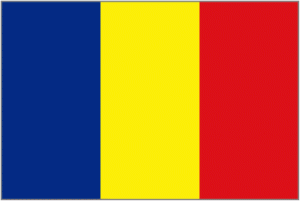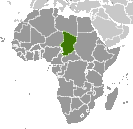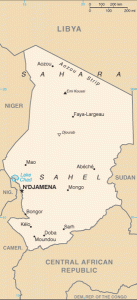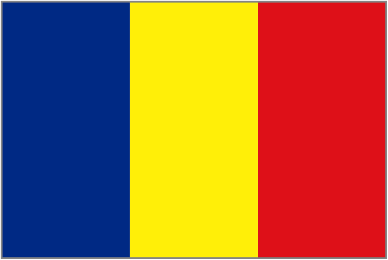August 11

Chad was one of 9 African nations to gain independence in August of 1960:
August 1, 1960 – Benin
August 3, 1960 – Niger
August 5, 1960 – Burkina Faso
August 7, 1960 – Cote d’Ivorie
August 11, 1960 – Chad
August 13, 1960 – Central African Republic
August 15, 1960 – Congo, Dem. Rep. of the
August 17, 1960 – Gabon
Sept. 22, 1960 – Mali
Apparently odd-numbered days are much better days to win sovereignty. Mali, being the rebel of the bunch.

Chad gets its name from the Lake on its western border, which provides water for 20 million people in Chad, Niger, Nigeria, and Cameroon. Chad means “lake” so essentially it’s “Lake Lake.”
6,000 years ago Lake Chad covered 150,000 square miles. 50 years ago—when Chad won its independence from France—the lake had shrunk to 10,000 square miles. Now, because of climate change and increased human usage (including irrigation), it’s down to only 500 square miles and disappearing fast. And as you can see from the video, waterfront property is getting harder and harder to find.
Watch Lake Chad disappear in real (sped-up) time! (1963-present)

On the landlocked country’s western border, the heat is on to determine who controls the precious water rights to the shrinking pool. Meanwhile, Chad’s eastern border is home to over a quarter million refugees from the Darfur region, due to the war that has ravaged west Sudan since 2003.
According to the Corruption Perceptions Index, Chad is the 7th most corrupt country in the world. Chad may rank near the bottom of the Human Development Index, but it’s rich in history. In 2002, scientists in Chad unearthed the oldest known hominid skull fossil, dating back some 7 million years.


